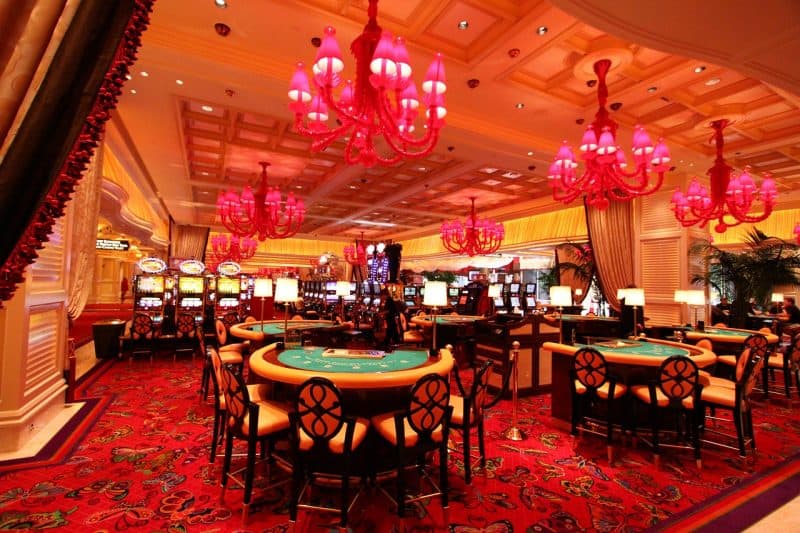
In the world of gambling, in which chance and strategy converge, a unique tapestry of beliefs emerges—one that braids luck, fate, and the enigmatic nature of casino games. Casinos, bustling with excitement and anticipation, are not just places for placing bets; they are also arenas in which superstitions thrive. Ranging from the novice player to the seasoned gambler, these mysterious practices often shape how individuals approach the games they play, holding the belief that their actions can impact the outcome in ways that go beyond mere probability.
When players gather around roulette wheels, blackjack tables, and slot machines, the atmosphere is thick with stories of lucky charms, rituals, and codified behavior that defy logic yet provide a sense of comfort. It could be the case that it’s wearing a specific outfit, following a particular sequence of bets, or even avoiding certain numbers, the attachment to various superstitions reflects a deep-rooted desire to master the uncontrollable. This article delves into the captivating world of casino game superstitions, investigating the beliefs that simultaneously entertain and mystify those who dare to play.
Cultural Roots of Superstitions
Gambling activities have long been connected with an array of superstitions that go back to early cultures. The roots of these notions can be associated to humanity’s fundamental wish to influence the unpredictable outcomes associated with luck and randomness. In ancient civilizations, activities of uncertainty were often tied to religious practices. Gamblers would call upon favor or ask for favor from spirits, believing that their actions could influence the outcomes in their advantage. This foundation laid the groundwork for the myriad of superstitions that proliferated as betting evolved over centuries.
During the medieval age, betting became a widespread hobby across the continent, and with it, a colorful tapestry of superstitions appeared. Players adopted numerous rituals and charms, believing they could change the results of games. The importance of numbers, in particular, emerged to appear in superstitions around card games and dice. The number seven was often considered auspicious, while other numbers carried bad connotations. These ideas mirrored the social contexts of the time, evolving as they transferred through generations and transformed to different gaming environments.
As casinos developed in the seventeenth century, particularly in the Italian peninsula and France, the atmosphere surrounding gambling became steeped in mystique. The growing openness of casino activities allowed for the spread and growth of superstitions among players. Concepts like charmed charms, specific seating locations, and rituals gained prominence, creating a special culture within betting houses. As these traditions continued to thrive, they became fundamental to the identity of casino games, illustrating how the past and society shape the convictions that influence how players engage with fortune.
Popular Casino Superstitions
Superstitions surrounding gambling activities are abundant and varied, mirroring the hopes and fears of players as they participate in chance-based activities. One of the most prevalent views is that certain numbers bring fortune or misfortune. For example, the digit seven is often seen as a lucky digit, frequently embraced by gamblers looking for a positive outcome. Conversely, the digit thirteen is routinely considered cursed, leading many gamblers to avoid it during their gaming sessions.
Another frequent belief relates to rituals that gamblers believe can influence their chances. Whether blowing on the dice before a throw, using a specific gesture to place a wager, or even putting on specific items of attire, many people feel that these actions can sway fate in their benefit. These rituals offer a sense of power in an otherwise unpredictable environment, strengthening the idea that luck can be manufactured through individual convictions and customs.
Finally, the environment and atmosphere of the gambling house itself adds to superstition. Many gamblers suggest that the presence of specific icons, such as four-leaf clovers or lucky tokens, can enhance their chances of winning. https://8ok.red/ Additionally, gamblers might adhere to the belief that victory streaks can be halted by mundane occurrences, such as a person passing by or a spill at the gaming surface. The shared environment in a casino can amplify these superstitions, creating a communal culture of myths that goes beyond individual experiences.
Impact of Superstitions on Players
Beliefs play a crucial role in the psychology of casino players, often affecting their actions and decision-making. A lot of gamblers think that luck can be influenced through different rituals, such as donning a talisman, choosing particular hues, or avoiding certain numbers. This reliance on superstitions can create a feeling of authority in an environment that is intrinsically unpredictable. Players frequently feel more confident and involved when they believe that their actions could sway the outcome of a game in their favor.
The influence of these superstitions extends beyond individual players, affecting the general atmosphere inside the casino. For example, a player who holds the belief in the luck of a particular slot machine might attract a crowd, as onlookers are intrigued by their apparent success. This shared belief can heighten excitement and create a lively environment, leading to an engaging experience even for those who may not necessarily be believers themselves. The excitement around specific games can lead to increased participation and extended playing sessions, supporting the casino’s lively social scene.
In some cases, superstitions can lead to harmful effects for players. Depending too heavily on rituals can result in poor gambling decisions, as some may overlook basic strategies in favor of baseless beliefs. Additionally, the pressure to perform rituals may increase anxiety and stress levels, detracting from the enjoyment of the experience. Ultimately, while superstitions can enhance the thrill of playing casino games, they can also lead to unwise choices that overshadow the fun and entertainment intended in the casino experience.